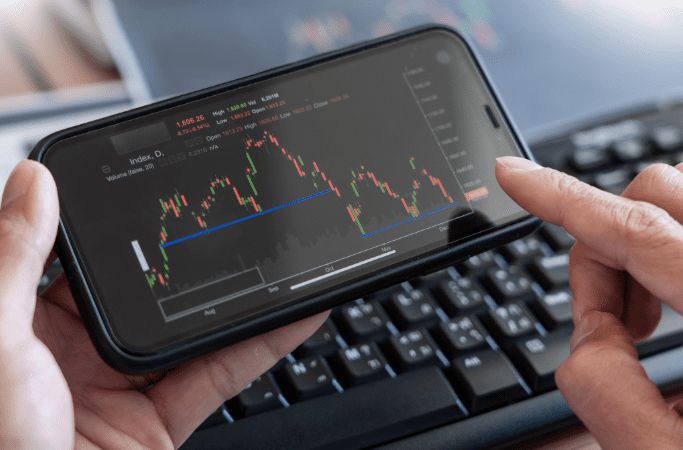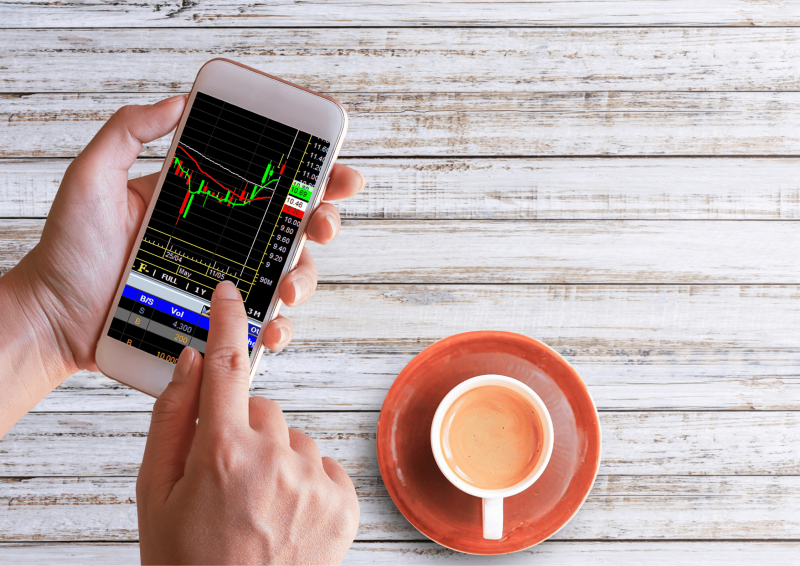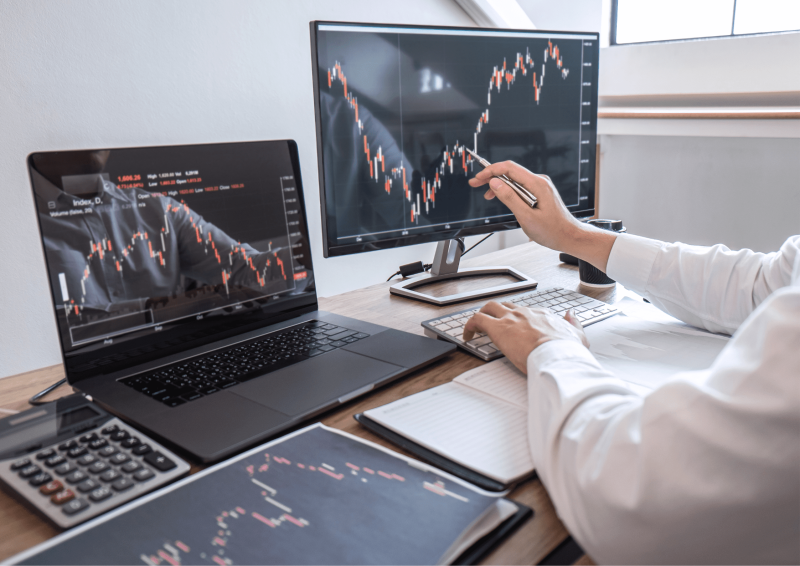The forex trading landscape is undergoing significant transformation driven by the global shift towards remote work. As remote jobs become increasingly commonplace, financial institutions and traders are adjusting to new market dynamics that affect how they operate and succeed in the forex markets. This article aims to explore the ramifications of remote working trends on forex trading, analyzing how these shifts influence the behavior of traders and the overall market environment.
As the world of work transitions to more flexible arrangements, the forex markets are seeing shifts in participation and trading strategies. These changes are shaping the way trades are executed and managed, with a notable impact on market liquidity and volatility. We will explore how these trends are altering the landscape for both individual traders and large financial organizations, delving into the challenges and opportunities presented by the evolving nature of work and its intersection with global financial markets.
The Rise of Remote Work and Its Impact on Forex Trading

Remote work has become a pivotal element in modern lifestyles, significantly impacting various sectors, including the forex market. The ability for individuals to trade fx from any location around the globe has introduced a new era in how financial markets function. This evolution has led to increased flexibility in trading hours and strategies, enabling remote workers in finance to engage with markets in a more dynamic and responsive manner.
The shifts towards remote work in the forex sector have broadened access to these markets, allowing a more diverse group of participants to engage in trading activities. This democratization of access not only empowers more people to participate in forex trading but also enhances the liquidity and vibrancy of the markets. As a result, there are now greater opportunities for individuals to manage their investments and explore new trading strategies from the comfort of their remote setups.
Also Read: Learn How To Trade Metaverse Stocks
Accessibility and Flexibility
Remote working has revolutionized access to forex markets, democratizing the field by enabling traders to operate from virtually anywhere. This newfound freedom has significantly increased participation from various regions around the globe, fostering a more inclusive trading environment. As traders harness the ability to manage their transactions remotely, the barriers that once limited participation based on geographic location have diminished.
This surge in accessibility has led to a more vibrant and diverse trading environment. With traders from different backgrounds and time zones entering the market, there is an increased flow of strategies, perspectives, and capital. This diversity not only enriches the trading landscape but also enhances the dynamism and liquidity of forex markets, making them more responsive and robust against global economic shifts.
Impact on Trading Hours and Volatility
The 24-hour trading cycle of the forex market aligns perfectly with the remote work lifestyle, enabling traders to operate across different time zones without constraint. This around-the-clock activity is ideal for remote workers who can tailor their trading schedules to match peak market times in various parts of the world, or their personal preferences, ensuring they never miss an opportunity.
With an increased number of traders working from diverse locations and at varying hours, the forex market has experienced potential rises in both volatility and trading volume. This change has led to more dynamic movements in currencies and markets, providing both challenges and opportunities. Traders need to stay alert and adaptable to capitalize on these conditions, making use of advanced tools and strategies to manage the associated risks effectively.
Technological Advancements Supporting Remote Forex Trading

Technological innovation is crucial in supporting remote workers who engage in forex trading. The development and deployment of sophisticated trading platforms and software have enabled traders to access real-time market data, execute trades instantly, and utilize advanced analytical tools—all from remote locations. These technologies not only streamline the trading process but also enhance decision-making through comprehensive market insights, thereby increasing the efficiency and competitiveness of traders.
These technological tools are fundamental in facilitating a seamless remote trading experience, contributing significantly to the market’s efficiency. Enhanced connectivity and integrated trading solutions allow for quicker response times to market shifts and opportunities, minimizing slippage and maximizing potential returns. Moreover, the continuous improvement of these platforms ensures that remote traders can maintain a competitive edge, adapting quickly to new trends and regulatory changes in the global forex landscape.
Trading Platforms and Tools
Financial institutions and tech companies have spearheaded the development of advanced trading platforms that equip remote workers with the necessary tools for effective trading, analysis, and risk management. These platforms are designed to offer comprehensive support, featuring real-time market data, sophisticated analytical tools, and options for automated trading. Such features enable traders to make informed decisions quickly and execute trades efficiently, thereby enhancing their ability to capitalize on market movements from anywhere in the world.
The availability of real-time data and automated trading options on these platforms significantly boosts the performance of traders by reducing the time lag between decision-making and action. The use of these advanced tools facilitates a proactive approach to trading, where risks are managed more strategically and opportunities are seized more rapidly. This technological empowerment not only improves individual trader performance but also contributes to the overall liquidity and functionality of the forex markets.
Security Measures
With the widespread adoption of remote trading, security has emerged as a paramount concern within the forex market. Brokers and financial institutions have significantly ramped up their efforts to safeguard client data and ensure that the trading environments are secure against potential cyber threats. This includes implementing robust encryption methods, secure authentication processes, and continuous monitoring of trading activities, which are essential for protecting sensitive financial information and maintaining trader confidence.
Innovations in cybersecurity play a critical role in defending the assets and information of both traders and clients. Advanced security measures, such as two-factor authentication, firewalls, and anti-virus protection, are now standard features on trading platforms. These technologies help to thwart unauthorized access and cyber attacks, ensuring that the integrity and reliability of trading operations are maintained. This commitment to security not only helps protect individuals but also strengthens the overall trust in the financial markets’ infrastructure.
Challenges of Remote Forex Trading

While remote forex trading offers numerous advantages such as flexibility and broader market access, it also introduces several challenges that traders and financial institutions must navigate to ensure success and stability. One of the primary challenges is the need for constant, reliable internet connectivity, which is critical for maintaining real-time communication with the markets. Additionally, remote traders must stay updated with global market hours and news, which can vary significantly across time zones, adding complexity to trading strategies and risk management.
Moreover, the regulatory landscape for forex trading can be complex and varies by jurisdiction, presenting another layer of challenge for financial institutions and individual traders. Ensuring compliance with these regulations while operating remotely requires robust systems and thorough knowledge of international finance laws. This is crucial not only for legal compliance but also for maintaining the integrity and security of trading operations. Thus, effective risk management strategies and compliance protocols are essential to navigate these challenges and capitalize on the opportunities presented by remote forex trading.
Connectivity and Infrastructure
A reliable internet connection is fundamental for remote trading, as it directly impacts a trader’s ability to stay connected to the forex market and execute trades promptly and accurately. Traders must ensure their internet connectivity is not only consistent but also fast enough to handle the high data throughput required for receiving real-time market updates and using advanced trading platforms. Delays or disruptions in connectivity can lead to missed opportunities or potential financial losses due to the time-sensitive nature of forex trading.
To mitigate risks associated with connectivity issues, traders often invest in high-quality internet services and consider having backup connections such as secondary Wi-Fi networks or cellular data plans. This ensures they can maintain access to trading platforms and market data under various conditions, allowing for continuous trading operations. Proper connectivity helps traders respond swiftly to market changes and execute trades correctly, crucial for maximizing their success and minimizing risks in the volatile forex market.
Regulation and Compliance
As forex trading becomes increasingly decentralized due to the rise of remote working, it encounters various regulatory challenges that complicate operations across international borders. Financial institutions engaging in forex markets must navigate a complex web of local and international regulations, which can vary significantly from one jurisdiction to another. Compliance with these regulations is critical not only to ensure legal operations but also to maintain trust and integrity within the financial markets. This requires a robust understanding of the regulatory landscape and often the implementation of specialized compliance teams to monitor changes and ensure adherence to rules globally.
The decentralized nature of trading also prompts regulatory bodies to continuously update and adapt their guidelines to catch up with technological advancements and changing market dynamics. This can lead to a dynamic regulatory environment where financial institutions must remain agile and proactive in updating their compliance procedures. Effective management of these regulatory challenges is essential for institutions to operate efficiently and legally, avoiding penalties and fostering a stable trading environment for their clients.
The Future of Forex Trading in a Remote Work World

Looking ahead, the integration of remote work into forex trading suggests a trajectory of continued evolution for the market. As technology advances and more traders opt for remote setups, we can anticipate further innovations in trading platforms and tools that enhance accessibility and efficiency. These developments will likely foster a more connected and fluid global trading environment, where market reactions may become quicker and more synchronized across different regions. This evolving landscape will require traders and financial institutions to continually adapt their strategies and technologies to stay competitive and effective in the market.
Future trends may also see an increase in the use of artificial intelligence and machine learning in trading algorithms, which can offer more sophisticated analysis and prediction models for market trends. As the market becomes more data-driven, the ability to quickly interpret vast amounts of information will be critical. Additionally, the regulatory framework is expected to evolve to address the challenges posed by a decentralized trading environment, ensuring that security and compliance are maintained. Traders and institutions will need to remain agile, updating their operational and compliance strategies to align with new regulations and technological capabilities.
Continued Growth and Integration
The trend towards remote work is poised to continue, likely spurring further growth and innovation in forex trading. As more individuals and organizations embrace this model, the forex market is anticipated to benefit from increased liquidity and heightened market dynamics. This shift will facilitate a larger number of participants from diverse backgrounds and locations, contributing to a more vibrant trading ecosystem. The continuous influx of new traders and fresh capital is expected to enhance market depth and foster more vigorous and varied market movements, providing greater opportunities for profit and strategic trading.
Moreover, as the remote work model solidifies within the forex trading community, we can expect a surge in technological advancements tailored to support this decentralized approach. Enhanced trading platforms, improved security protocols, and more robust analytical tools will likely become standard, driving efficiency and accessibility for traders operating from remote locations. This evolution in the trading infrastructure will not only accommodate the growing number of remote traders but also refine the way market operations are conducted, making forex trading more agile and responsive to global economic changes.
New Opportunities for Traders and Investors
Remote work significantly lowers the barriers to entry for the forex market, making it more accessible to a broader range of participants. This increased accessibility is facilitated by online platforms and mobile trading apps that allow users to engage in forex trading with minimal initial investment and from any location. As a result, individuals who previously may have been excluded due to geographic or economic constraints can now participate in forex trading. This inclusivity enriches the market with a diversity of perspectives and trading strategies, potentially leading to a more dynamic and resilient market environment.
This democratization of access not only diversifies the pool of market participants but also encourages the development of varied investment strategies. As traders from different backgrounds and with different levels of experience enter the market, they bring unique approaches and insights, which contribute to a richer, more innovative trading landscape. This variety can enhance market depth and complexity, offering seasoned traders new challenges and opportunities while providing newcomers with a range of pathways for engagement and learning in the forex world.
Conclusion
The shift towards remote work has had a profound impact on the forex markets, presenting both opportunities and challenges. This trend towards remote work aligns well with the nature of forex trading, which operates on a 24-hour cycle and can be accessed globally. As more traders move to remote setups, there is an increase in market participation, which enhances liquidity and can lead to more volatile market conditions. These dynamics provide traders with more opportunities to profit but also require more sophisticated risk management strategies to navigate the increased market fluctuations effectively.
As the global workforce continues to embrace remote work, the landscape of forex trading is expected to evolve significantly, mirroring changes in work-life balance and operational logistics. Traders and financial institutions must be agile, adapting their strategies and technologies to thrive in this new environment. This includes leveraging advanced trading tools, enhancing cybersecurity measures, and staying informed about regulatory changes that affect trading across borders. Successfully adapting to these changes not only helps in capitalizing on the potential benefits of remote forex trading but also in mitigating the risks associated with this increasingly digital and decentralized market.
Also Read: Prop Trading And How To Do It
FAQs
What are the benefits of remote forex trading?
Remote forex trading offers several key benefits including enhanced flexibility and accessibility. Traders can manage their trades from any location at any time, allowing for a more adaptable trading schedule that can align with global market hours and personal availability. Additionally, remote trading lowers barriers to entry, opening up forex markets to a wider audience. This flexibility and increased participation can lead to greater market liquidity and more dynamic trading opportunities.
What are the challenges of remote forex trading?
While remote forex trading presents many advantages, it also comes with challenges. One of the primary issues is the need for reliable and fast internet connectivity, essential for real-time market engagement and trade execution. Furthermore, remote traders must navigate the complexities of a decentralized regulatory environment, ensuring compliance across different jurisdictions. Additionally, maintaining security in a remote trading setup is crucial, as traders need to protect their financial data against cyber threats.
How is technology shaping the future of forex trading in a remote work environment?
Technology plays a crucial role in shaping the future of forex trading, particularly in a remote work environment. Advanced trading platforms and mobile applications are continuously being enhanced to offer more sophisticated tools for market analysis, trade execution, and risk management. Innovations such as artificial intelligence and machine learning are being integrated to provide deeper insights and more efficient trading strategies. As technology evolves, it also helps improve the security and regulatory compliance capabilities of trading platforms, making forex trading more secure and adaptable to global standards.



